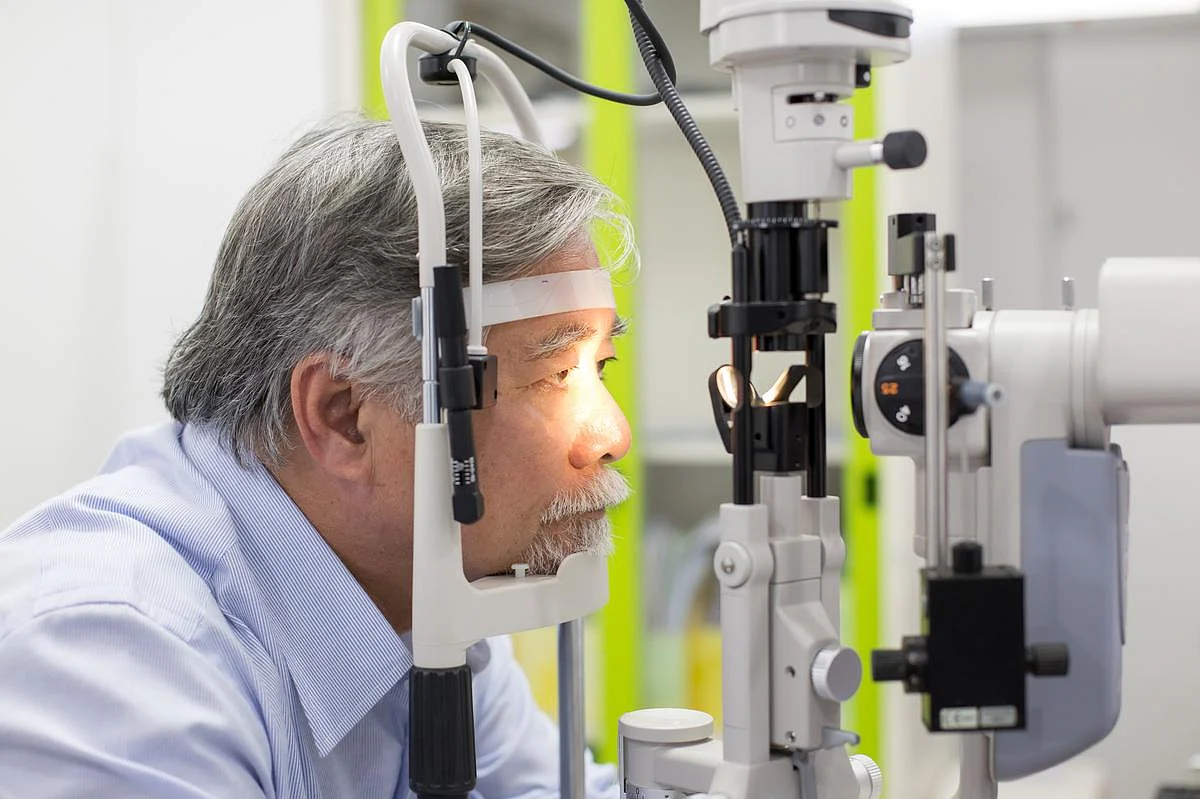Diabetes Can Damage Your Eyes' Retinas: An Expert Explains
TUESDAY, Nov. 5, 2024 -- People with diabetes face a number of health challenges related to their chronic condition, and loss of vision due to retinal damage is one of them.
“Diabetes can silently damage a person’s most precious sense, their sight, before symptoms even appear. That’s why everyone with diabetes should focus on their eyesight and receive regular dilated eye exams,” said Dr. J. Michael Jumper, president of the American Society of Retina Specialists (ASRS).
However, there have been significant advances in early detection and treatment of diabetic retinopathy, Jumper added in an ASRS news release.
“Losing sight from diabetes-related eye disease is not a foregone conclusion,” Jumper said. “There is hope, including advances in early detection and treatment spearheaded by retina specialists that can help people with diabetes enjoy healthy vision for a lifetime.”
The ASRS is encouraging people with diabetes to learn more about the ways their condition can affect their eye health.
Nearly 40 million Americans have diabetes, and nearly half of those folks will develop diabetic retinopathy. In that condition, diabetes causes damage to the blood vessels of the retina.
Factors that can increase a diabetic person’s risk of developing diabetic retinopathy include:
-
Poor control of blood sugar levels
-
High blood pressure
-
Kidney disease
-
Elevated cholesterol
-
Pregnancy
Many with diabetic retinopathy might have the condition a long time without symptoms, the ASRS says. By the time symptoms occur, substantial damage to vision might have already happened.
Symptoms can include:
-
Blurred or distorted vision
-
Difficulty reading
-
Spots or “floaters” in vision
-
A shadow across the field of vision
-
Eye pressure
-
Difficulty with color perception
-
Blurred or double vision
Dilated eye exams can help detect diabetic retinopathy by allowing a better view of retinal tissue, the ASRS says.
There also are many advanced technologies that ophthalmologists use to track retinal health.
These include:
-
Optical coherence tomography, which provides highly detailed cross-sectional images of the retina
-
Fundus photography, which takes photos to document diabetic retinopathy
-
Fluorescein angiography, which uses a dye injected into the bloodstream to track blood flow within the retina and the rest of the eye
There are also many treatments available for people with diabetic retinopathy, including eye injections, laser treatments and surgery.
Eye injections involve anti-VEGF drugs, which block a protein that promotes the growth of blood vessels into the retina. Newer formulations of these drugs allow people to receive fewer injections per year, the ASRS says.
Sources
- American Society of Retina Specialists, news release, Nov. 5, 2024
Disclaimer: Statistical data in medical articles provide general trends and do not pertain to individuals. Individual factors can vary greatly. Always seek personalized medical advice for individual healthcare decisions.
© 2025 HealthDay. All rights reserved.
Read this next
Hair Samples May Help Spot Mental Health Risks in Sick Kids
WEDNESDAY, Sept. 17 2025 — Children with chronic illnesses face extra challenges, and measuring stress through hair samples may help doctors predict which kids are at...
FDA Cracks Down on Hims, Other Telehealth Companies Over Drug Ads
WEDNESDAY, Sept. 17, 2025 — Federal health officials are cracking down on telehealth companies’ promotion of unapproved versions of prescription drugs, including...
Can Weed Increase Risk Of Type 2 Diabetes?
TUESDAY, Sept. 16, 2025 — Weed might nearly quadruple a person’s risk of developing type 2 diabetes, a new study says. People who use cannabis have a 3.7 times...
More news resources
- FDA Medwatch Drug Alerts
- Daily MedNews
- News for Health Professionals
- New Drug Approvals
- New Drug Applications
- Drug Shortages
- Clinical Trial Results
- Generic Drug Approvals
Subscribe to our newsletter
Whatever your topic of interest, subscribe to our newsletters to get the best of Drugs.com in your inbox.


